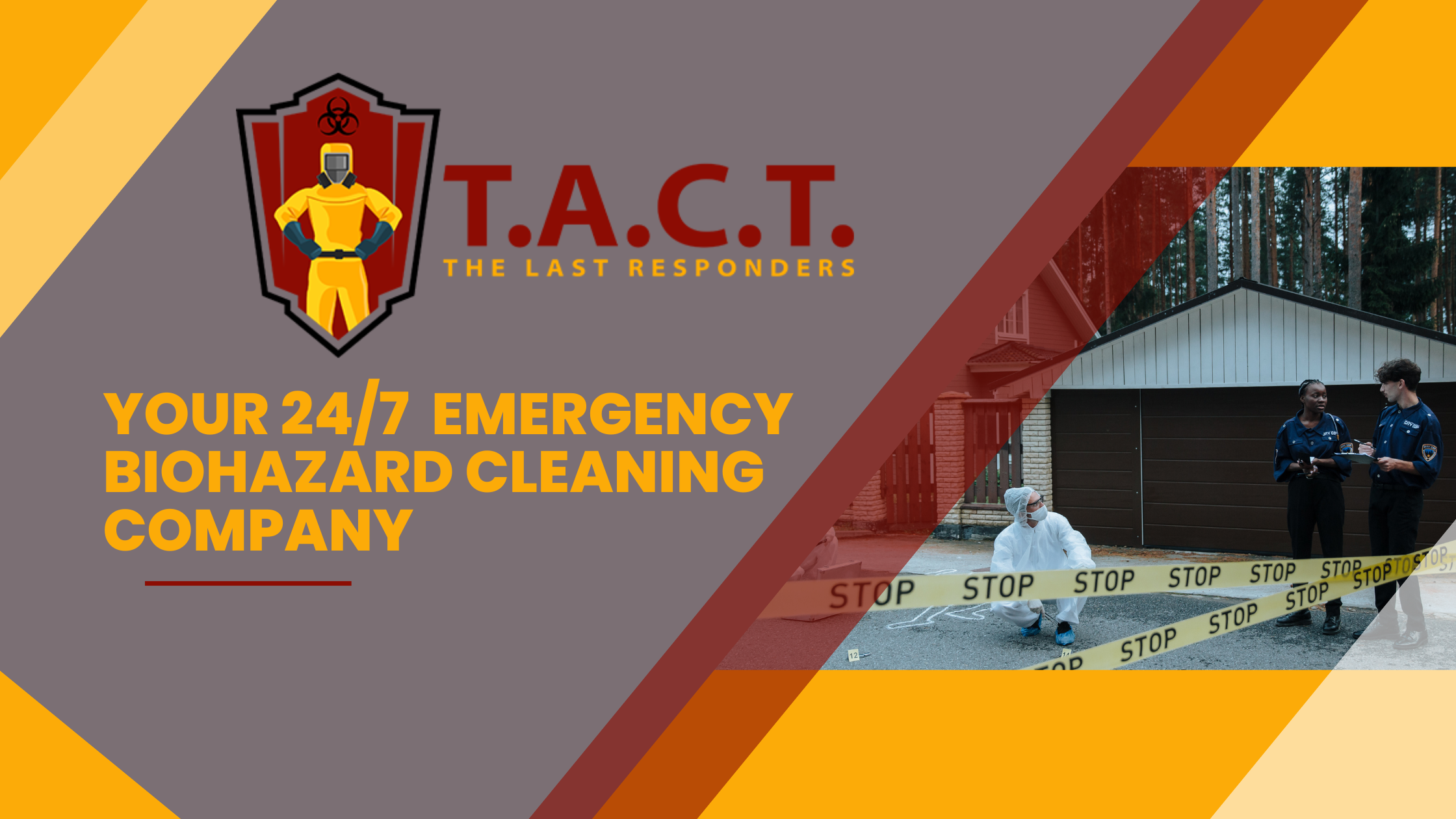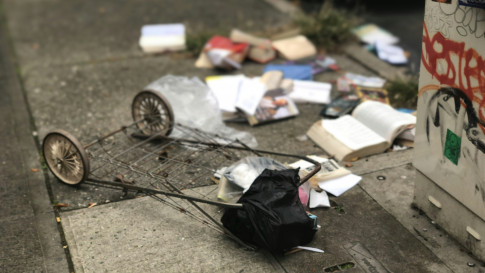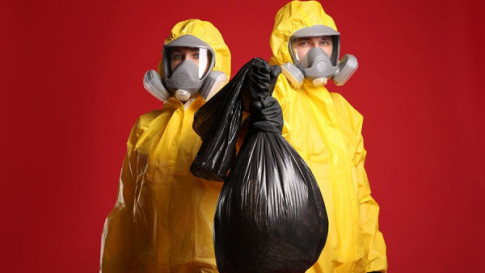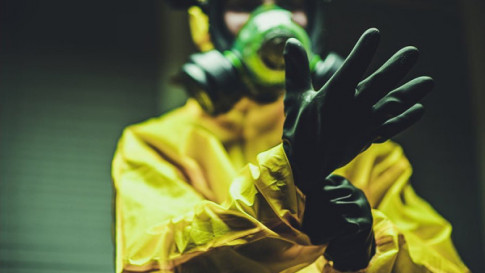Behind the Tape: Navigating the Protocols of Crime Scene Clean Up

Understanding the Intricacies of Crime Scene Decontamination
MAY 2024
Crime scenes present a variety of challenges from emotional trauma to potential health hazards. When law enforcement and first responders have finished their investigations, the significant task of cleaning the scene ensues. This is a critical process that requires professional attention - from meticulous cleaning and decontamination to the safe disposal of hazardous substances, in order to the area as a safe space.
Unraveling the Crime Scene Cleanup Process
Also known as biohazard remediation, crime scene cleanup involves the professional and thorough removal of blood, bodily fluids and other potentially infectious materials from the scene of a crime or traumatic event. This procedure is not only vital for the integrity of the home or business but to eliminate any biohazards that may pose significant health risks.
Key Aspects of Crime Scene Cleanup:
- Biohazard Material Removal: This includes the meticulous cleaning and removal of blood, tissue, bodily fluids, and any other potentially infectious materials.
- Disinfection And Decontamination: Specialized cleaning agents and techniques are utilized to disinfect and decontaminate surfaces, ensuring the complete eradication of pathogens.
- Odor Elimination: Professionals like T.A.C.T. crime scene cleanup teams use specialized equipment and proprietary deodorizing agents to eliminate all odors associated with the scene.
- Proper Disposal: Hazardous materials and biohazardous waste are carefully packaged and disposed of abiding by local OSHA regulations.
- Restoration: This can sometimes involve removing or replacing affected materials, such as flooring, walls, or furniture to restore the space to its original condition.
- Documentation And Reporting: Trained professionals maintain detailed records of their actions, ensuring compliance with legal and safety standards.
Why choose T.A.C.T. of Northern Virginia?:
- Safety And Compliance: Crime scenes often contain biohazardous materials, such as blood-borne pathogens, that can pose serious health risks. Trained professionals have the expertise and equipment necessary to safely handle and dispose of these materials while complying with local, state, and federal regulations.
- Compassion: The process of cleaning a crime scene can bring emotional distress to everyone involved. T.A.C.T professionals handle these difficult situations with utmost empathy, sensitivity and respect while maintaining discretion.
- Specialized Equipment And Techniques: Crime scene cleanup requires specific equipment, industrial-strength cleaning agents, and advanced tools. Trained professionals utilize these resources to ensure a comprehensive and effective cleanup process.
- Preventing Further Contamination: Incorrect cleanup could lead to secondary contamination or spread of pathogens. Trained professionals at T.A.C.T. understand the importance of containment and leverage techniques to prevent further harm.
T.A.C.T. of Northern Virginia demonstrates specialized knowledge, skills and equipment to ensure the decontamination process is conducted safely and effectively. Their unparalleled expertise, sensitivity, and commitment to public safety standards make them a vital part of the recovery process after a traumatic event.
Discreet. Professional. Empathetic.
Crime and Trauma Scene Decontamination
24/7/365
T.A.C.T. PWC
(703) 795-0027
Latest news

Learn about the complete process of trauma scene cleanup in Prince William County, VA, from initial arrival to full restoration, ensuring a safe environment.
Read More
Supporting Communities with Specialized Cleaning & Biohazard Services. Virus Decontamination, Hoarding Cleanup, Deep Cleaning Services, Blood Cleanup, and Human Waste Cleanup.
Read More
Suicide Cleanup in Washington, D.C., Northern Virginia & Frederick, MD. Certified Biohazard Cleanup, Blood Cleanup, Crime Scene Cleanup, and Dead Body Clean Up Professionals.
Read More